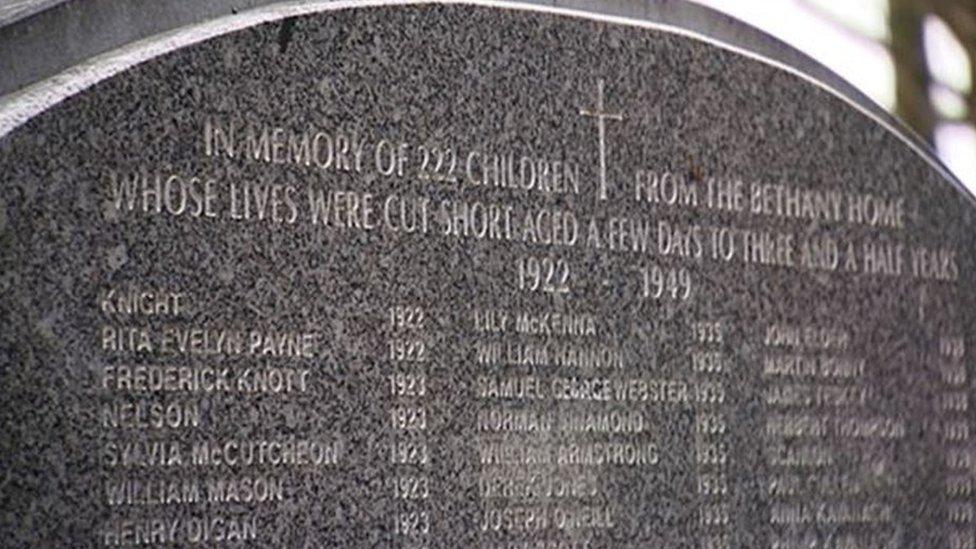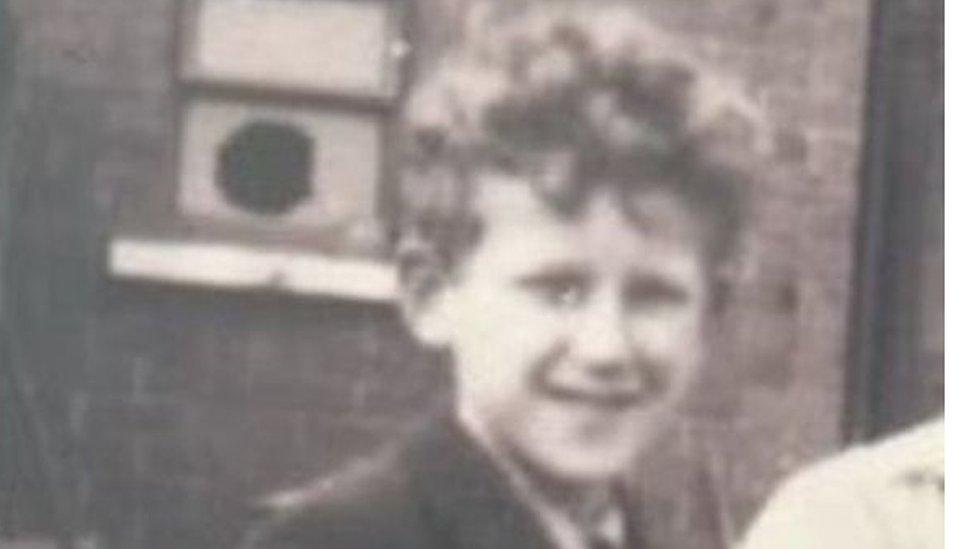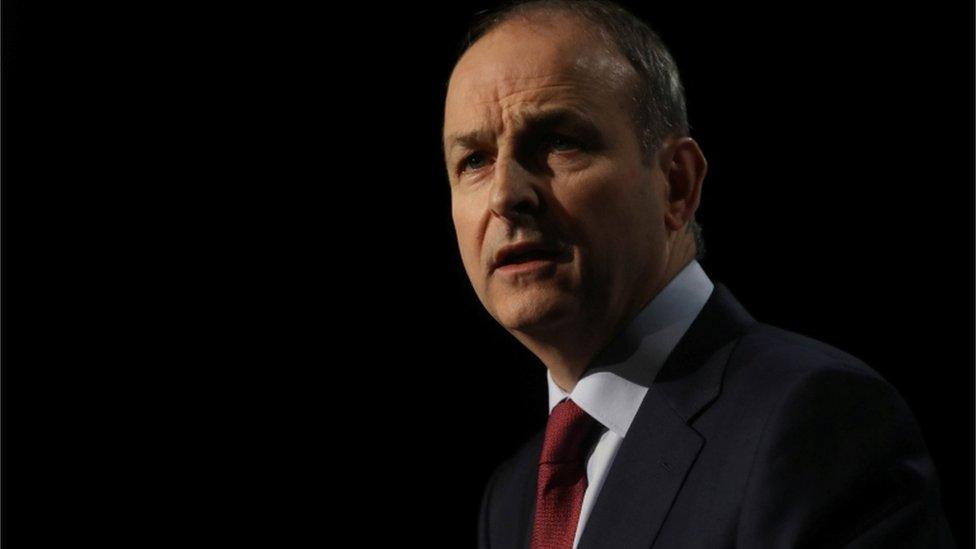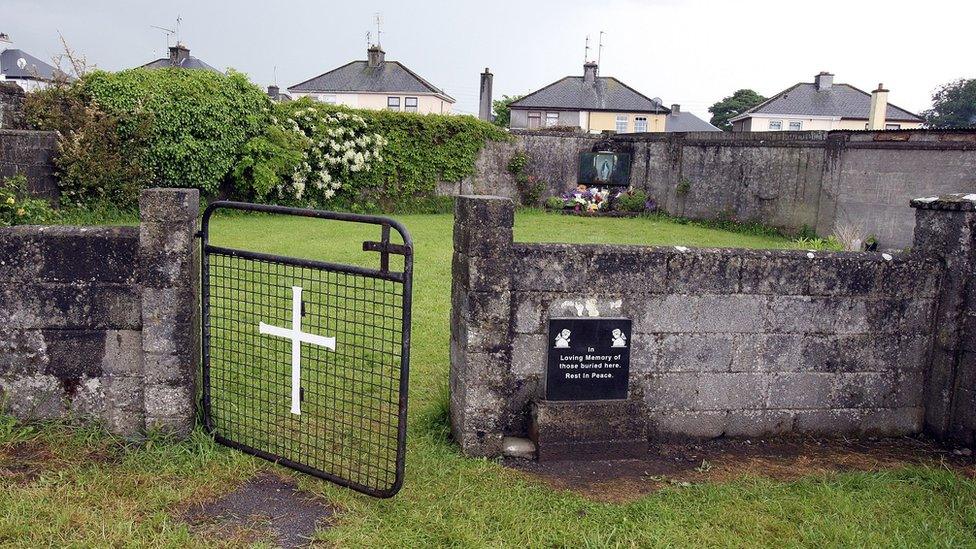Mother and baby homes: Call for Church of Ireland apology
- Published
Paul Graham is glad the mother-and-baby home report has been published but believes the Church of Ireland should make an apology
The Church of Ireland should apologise for its involvement in running a Protestant mother and baby home in Dublin, one survivor has said.
Paul Graham, 81, spent his early childhood in Bethany Home - a place for unmarried mothers and their children.
The facility was included in an investigation into Ireland's mother and baby homes that found an "appalling level of infant mortality".
The Church of Ireland has said it neither owned nor managed the home.
A chapter of the report says the home was run by a committee of clergy from several Protestant churches, including the Church of Ireland, and lay people before it closed in 1971.
Almost one in 10 women in Bethany Home was from Northern Ireland.
"A very high rate of infant mortality was a common feature of all mother and baby homes until the late 1940s and Bethany was no exception," it says.
A total of 262 children associated with Bethany died.
'Shedding light on suffering'
Taoiseach (Irish Prime Minister) Mícheál Martin said the report, external described a "dark, difficult and shameful chapter" of Irish history.
Mr Graham, whose birth mother was from County Tyrone and who was later adopted by a family from Northern Ireland, said his early experience in Bethany Home left a "terrible mark" on his life.

He welcomed the report and the apology from the Irish government and the Catholic Church, but said he still "needed to hear" an acknowledgement from the Church of Ireland for its involvement in the home.
Mr Graham insisted the church was a key player in the home, which was officially opened by the Church of Ireland Archbishop of Dublin at the time.
The report says the home, which opened in 1922, was an amalgamation of two previous charities "associated with the Church of Ireland", although their services were open to any women.
The report found that "a dominant influence on the management committee and, consequently, on the ethos of Bethany (particularly in its first decades of existence), were those members who were associated with the Church of Ireland's Society of Irish Church Missions to the Roman Catholics (ICM)".
Mr Graham said he felt the report proved the Church of Ireland had a say in running Bethany Home and should apologise.
"All I am asking is for them to do is to stand up and say: 'Yes, we knew about this, we're sorry.' That's all. It's not a big thing to do," said Mr Graham.
"If they don't do it, I will continue our campaign to get it done."

Paul Graham, seen here as a child, returned to Northern Ireland to investigate the circumstances of his childhood in 2019
A spokesman from the Church of Ireland said it would give the Mother and Baby Homes Commission of Investigation report "careful consideration".
"The report rightly sheds light on the suffering of women and children who found themselves with nowhere else to go but to these mother and baby homes.
"The pain and hurt experienced by the women and children in these homes has been shocking and disturbing, and their response has been courageous and inspiring.
"We appreciate the extensive work undertaken by the commission, and acknowledge the commitment of those former residents, and others, who have persisted in focusing attention on the issue of mother and baby homes."
The commission has made 53 recommendations, including compensation and memorialisation.
The leader of the Catholic Church in Ireland, Archbishop Eamon Martin, said he accepted his church was part of a culture in which "people were frequently stigmatised, judged and rejected".
"For that, and for the long-lasting hurt and emotional distress that has resulted, I unreservedly apologise to the survivors and to all those who are personally impacted by the realities it uncovers," he said.
'I feel free'
In 2019, Mr Graham, who now lives in Sydney, Australia, returned to Northern Ireland to investigate the circumstances of his childhood.
During his trip he met his brother for the first time and was also reunited with another survivor from Bethany Home who had also been adopted in Northern Ireland.
He said the visit had opened old wounds that had taken many months to heal.
Despite his continuing disappointment with the Church of Ireland, Mr Graham said he felt the report was genuine and would bring him some closure after years of campaigning.
"I accept what happened to me and I'm so glad that someone has recognise what happened. I feel free," he said.
"I just feel vindicated, I really think the commissioner did a fantastic job."
NI report due
Meanwhile the chairwoman of a report into mother and baby homes in Northern Ireland said it has raised "very serious questions" about adoption practise and infant mortality.
Judith Gillespie told the BBC's Good Morning Ulster programme that research had revealed similar themes to those seen in the Republic of Ireland report, which found about 9,000 children died in the 18 institutions investigated.
Ms Gillespie, a former PSNI deputy chief constable, said it "has raised a number of very serious questions around adoption practise and procedure that really deserve answered.
"It also raises questions around infant mortality rates which have been an issue in the Republic of Ireland's report and those questions from my perspective also deserve answers.
"Those would be the two priority areas that I think we should be focussing on going forward."
The research paper on NI mother and baby homes is due to be published before the end of January.
It comes as there are fresh calls for an inquiry into those institutions..
Related topics
- Published13 January 2021

- Published13 January 2021
